- Prince Institute offers career-focused study in the fields of court reporting, broadcast captioning, CART, office assistance, and more. Learn the skills to succeed in today?s business environment.
School Highlights
Prince Institute-Southeast served 84 students (100% of students were full-time).
The college's student:teacher ratio of 7:1 was lower than the state community college average of 20:1.
Minority enrollment was 29% of the student body (majority Black), which was less than the state average of 43%.
School Overview
Prince Institute-Southeast
(AL) Community College Avg.
Carnegie Classification
Associates Colleges
Associate's Colleges: Mixed Transfer/Career & Technical-High Traditional
Institution Level
Less than 2 yrs
At least 2 but less than 4 years
Institution Control
Public
Public
Total Faculty
12 staff
153 staff
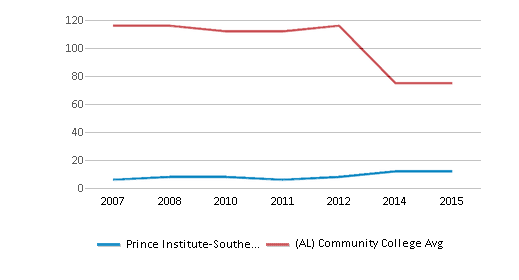
Student Body
Total Enrollment
84 students
2,464 students
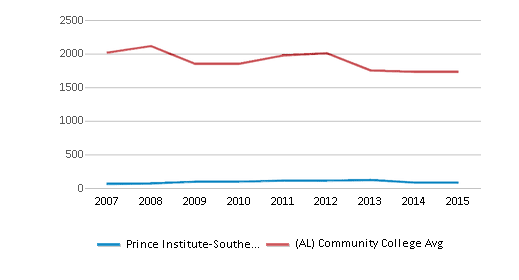
Student : Teacher Ratio
7:1
20:1
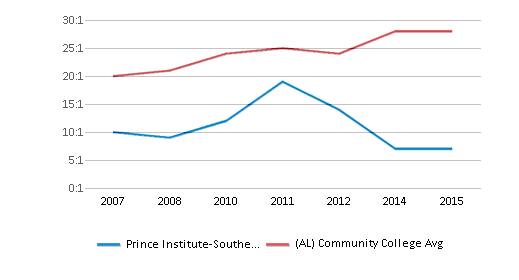
# Full-Time Students
84 students
873 students
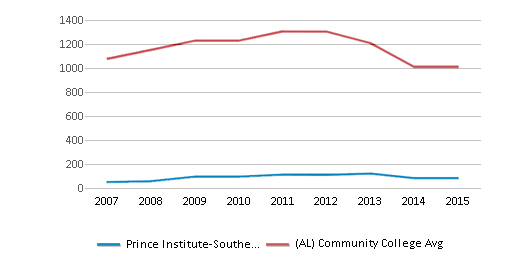
# Part-Time Students
n/a
1,855 students
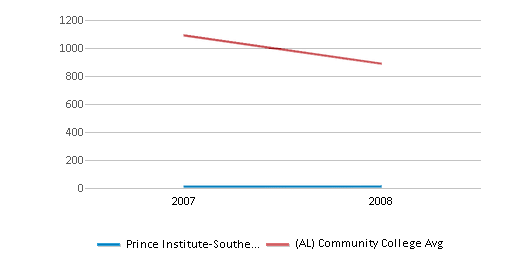
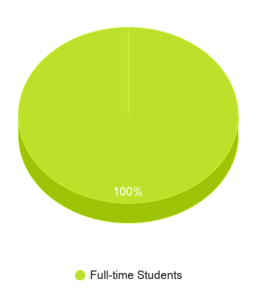
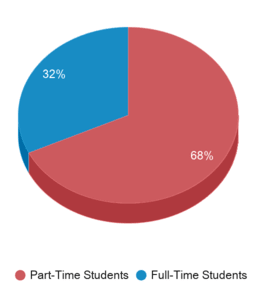
# Enrollment Undergraduate
64 students
422 students
# Full-Time Undergraduate Students
84 students
873 students
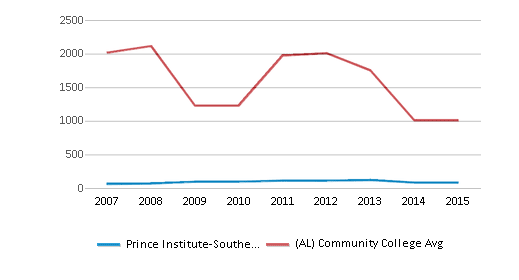
# Full-Time Graduate Students
n/a
11 students
# Part-Time Undergraduate Students
n/a
2,077 students
# Part-Time Graduate Students
n/a
30 students
Total Dormitory Capacity
n/a
168 students
% American Indian/Alaskan
6%
n/a
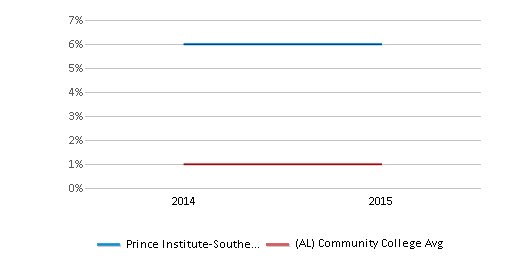
% Asian
n/a
2%
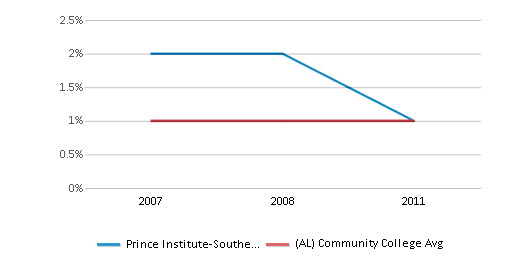
% Hispanic
n/a
6%
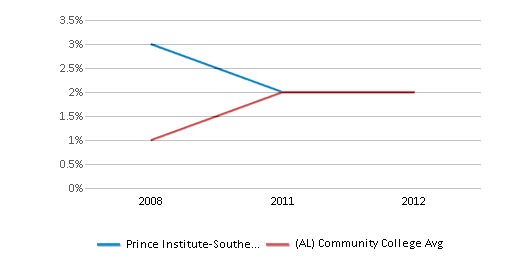
% Black
11%
27%
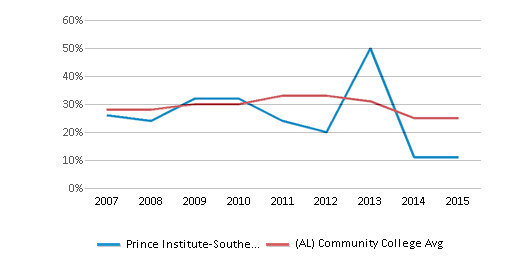
% White
71%
57%
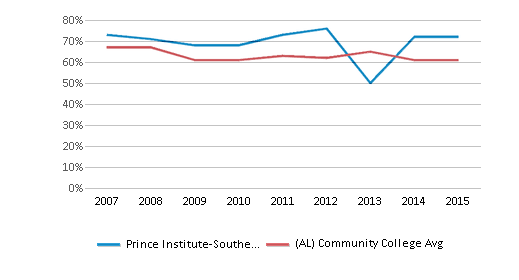
% Hawaiian
6%
n/a
% Two or more races
n/a
4%
% Non Resident races
n/a
1%
% Unknown races
6%
3%
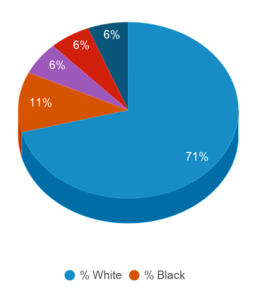
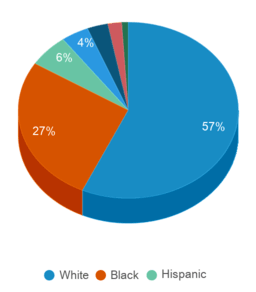
Diversity Score
0.48
0.60
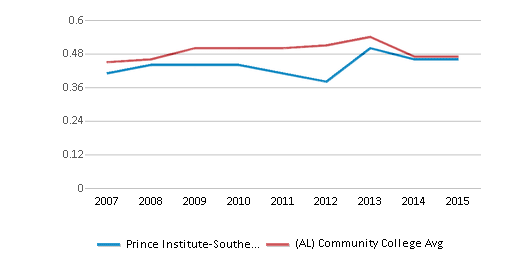
College Completion Rate (Students who graduate in less than 4 years)
11%
16%
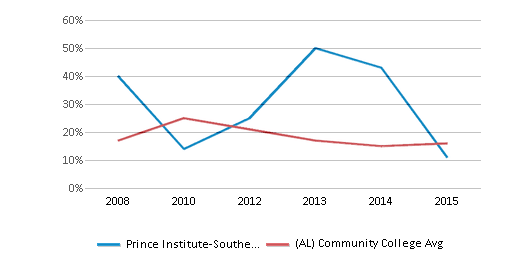
College Completion Rate (Students who graduate in 4 years or more than 4 years)
n/a
0.3%
Average Graduate Earnings (10 Years) (Year 2012)
$28,700
$30,200
Tuition and Acceptance Rate
In-State Tuition Fees
$9,685
$4,077
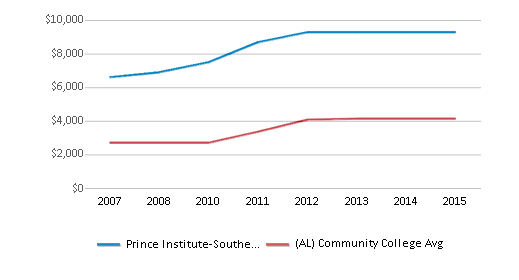
Out-State Tuition Fees
$9,685
$7,206
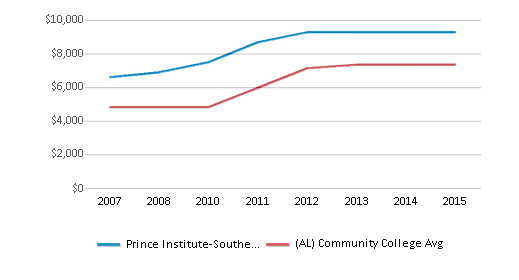
% Students Receiving Some Financial Aid
100%
93%
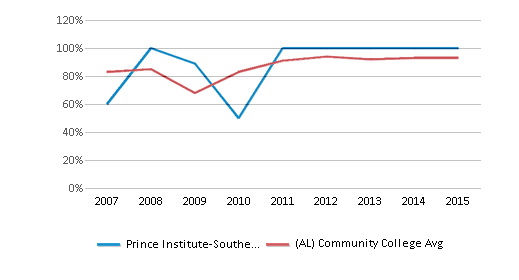
Median Debt for Graduates
$20,992
$11,000
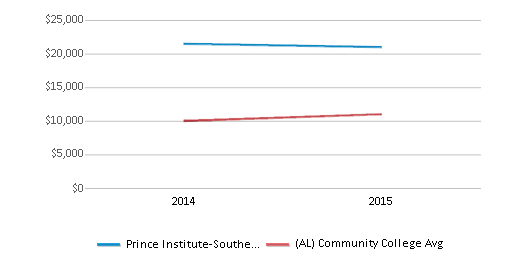
Median Debt for Dropouts
$14,405
$5,500
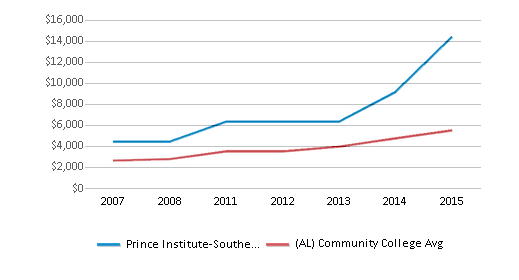
Acceptance Rate
n/a
81%
SAT Reading
n/a
530
SAT Math
n/a
545
ACT Composite
n/a
23
ACT English
n/a
21
ACT Math
n/a
22
Source: 2015 (or latest year available) Integrated Postsecondary Education Data System (IPEDS)
School Notes
- Do you aspire to develop skills to start an exciting, in-demand career in court reporting, captioning or other professional services? Prince Institute can offer you the opportunity to attain an associate degree, diploma or certificate, and help you develop the self-confidence you need to succeed. Prince Institute offers many flexible options to help you achieve the career you want that can fit your lifestyle. Our accredited programs can provide you with a solid foundation to advance in the following careers: Realtime Judicial Reporting, Government or Corporate Reporting, Webcasting, Broadcast Captioning, CART (Communication Access Realtime Translation), Scoping, Proofreading, Office Assistant, and Professional Transcription.
Frequently Asked Questions
How much does Prince Institute-Southeast cost?
Prince Institute-Southeast's tuition is approximately $9,685 for In-State students and $9,685 for Out-State students.
Recent Articles

Obtaining Your Bachelor's Degree at a Community College
Explore the evolving landscape of community colleges offering bachelor's degrees, addressing affordability, accessibility, and workforce needs.

A to Z of Community College Certificates and Courses
From business and healthcare to technology and skilled trades, the article showcases the breadth of options available to students seeking to enhance their knowledge, develop new skills, or pursue career advancement.

What is a Community College?
This comprehensive guide explains what a community college is, its history, and its role in higher education. It covers the types of programs offered, differences from four-year colleges, benefits of attending, and important considerations for prospective students, providing valuable insights for those exploring educational options.





